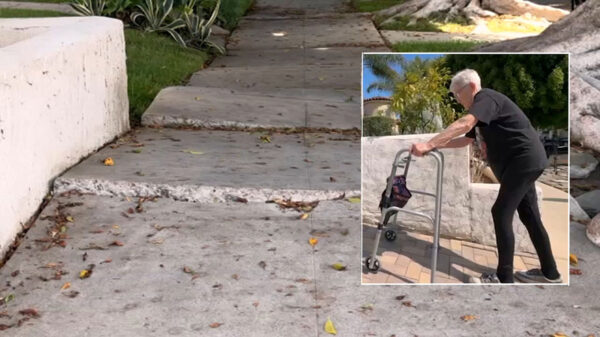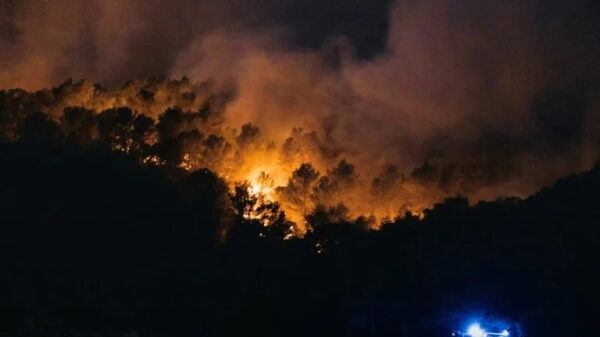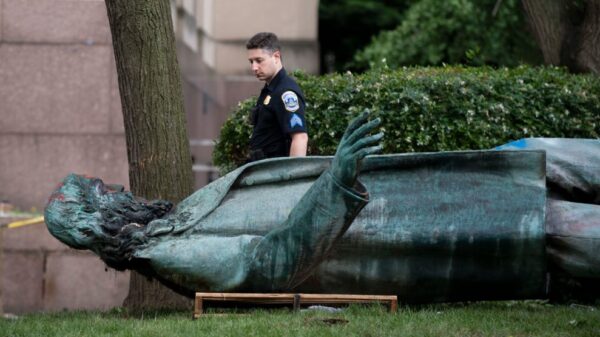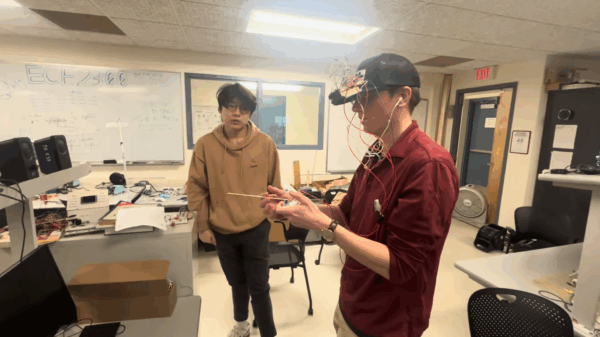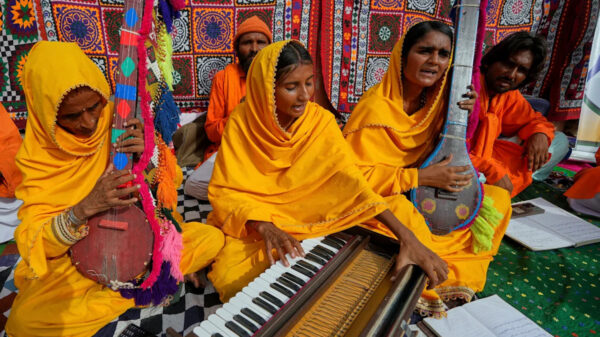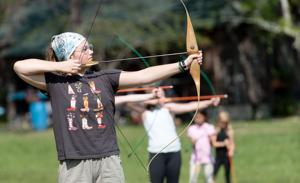EDINBURG — For almost a century, Camp Strawderman has served as a transformative summer experience for girls aged 6 to 17. Located in the scenic Shenandoah Valley, this camp has enabled generations of girls to build confidence, develop lifelong friendships, and become part of a cherished legacy. “It’s our mission here at Camp Strawderman to make girls happy, so they will share their happiness with others,” said camp director Jeanne Mockard. The camp’s ethos emphasizes the creation of enduring bonds among campers, making it a place where happiness and connection flourish.
Established in 1929 by Margaret “Barca” Hoffman, the camp is named after the Strawderman family, who originally owned the land. Hoffman’s vision began in 1917 when she invited friends to enjoy horseback riding and hikes at her father’s farm. Her commitment to inclusivity is reflected in the camp’s early acceptance of diverse backgrounds, a lesson she learned from her father, who cared for Hessian farmers in the 18th century.
Camp Strawderman spans over 300 acres, offering a wide range of activities that include horseback riding, swimming, arts and crafts, and archery. Beyond recreational pursuits, the camp fosters an appreciation for nature and encourages girls to uncover their hidden strengths. The camp’s philosophy promotes a lasting sense of self-respect, love for others, and commitment to community.
A Day in the Life at Camp Strawderman
Each day at Camp Strawderman begins at 7 a.m. with the ringing of a bell, followed by morning rituals that include raising the flag and sharing breakfast. Mockard describes the morning energy as a unique experience, filled with the sounds of slamming cabin doors as over 90 campers prepare for the day. Following breakfast, campers engage in various morning classes, which may include activities such as tennis, dance, and loom beading.
Many counselors are former campers who return to share their passion. Anna Jarrell, a dedicated member of the camp community since 1950, believes the camp is a place where “passions come alive.” Newer campers also quickly feel the camp’s magic, including Daniela Diaz, a member of the soccer staff from Madrid, Spain, who expressed her immediate connection to the camp atmosphere.
The camp’s equestrian program offers girls the chance to ride and care for horses, including a blind horse named Aldie. Mockard notes that the program accommodates all skill levels, ensuring that even those who have never ridden before can enjoy their summer. Campers often leave with newfound confidence, as indicated by barn director Laurie Atkinson, who observes significant growth in campers over their time at the camp.
Lunch provides an opportunity for campers to share their favorite moments and anticipate mail from home, creating a sense of community. The joy of receiving letters and packages is palpable, with campers expressing excitement over small treats from family.
The day continues with recreational activities, such as yoga or hiking, followed by dinner at 5:30 p.m. where cabin sing-alongs frequently break out. Each evening concludes with a campfire, where campers gather to sing songs and perform skits, culminating in a nightly goodnight circle before lights out at 9:30 p.m.
Building Lifelong Friendships
For many campers, like Pippia Moffatt, a fourth-generation attendee, the camp experience is about forming new friendships. The Australian native eagerly returns each summer, continuing her family’s legacy. “I came last summer and ran around here like I’d been here forever,” she said, expressing her excitement about reuniting with friends.
Campers such as Bennet Hyland and Addy Miller from Maryland and Virginia respectively share similar sentiments, noting the unique bonds they form at camp compared to friendships made at home. Mae Williams, a Connecticut camper, describes camp friendships as “tighter and stronger,” emphasizing the special connection that forms in this environment.
Mockard reflects on the community aspect, noting that the camp fosters independence among girls, which contributes to the rapid development of friendships. Campers are encouraged to be themselves, creating an atmosphere where genuine connections can flourish.
The camp’s legacy extends beyond individual experiences; many former attendees return to support the camp, highlighting its lasting impact. As Valerie Webdell, the program director, points out, Camp Strawderman provides an environment devoid of modern distractions, allowing campers to connect authentically. This unique approach has made the camp a cherished institution, even as it prepares to celebrate its centennial.
“After 96 years, the camp hasn’t changed much,” Webdell remarked, recognizing the enduring connections that former campers maintain with the camp. As preparations begin for the 100th anniversary, Mockard remains optimistic about the future, emphasizing that Camp Strawderman will always be a vital part of the lives it touches.





